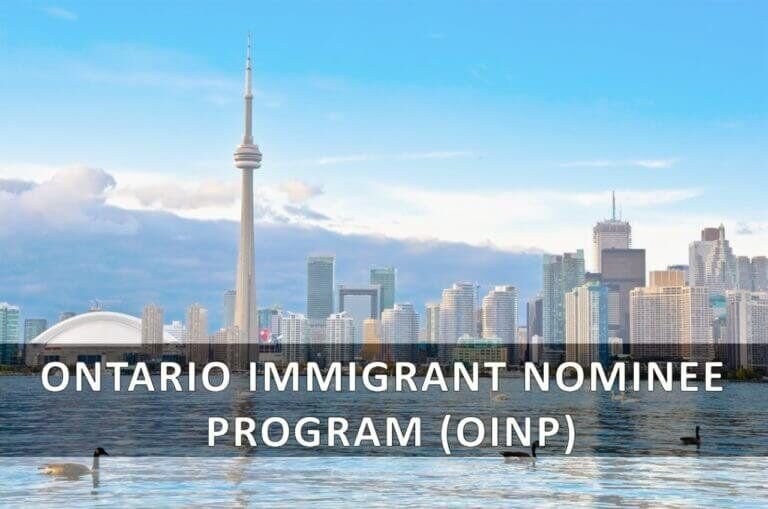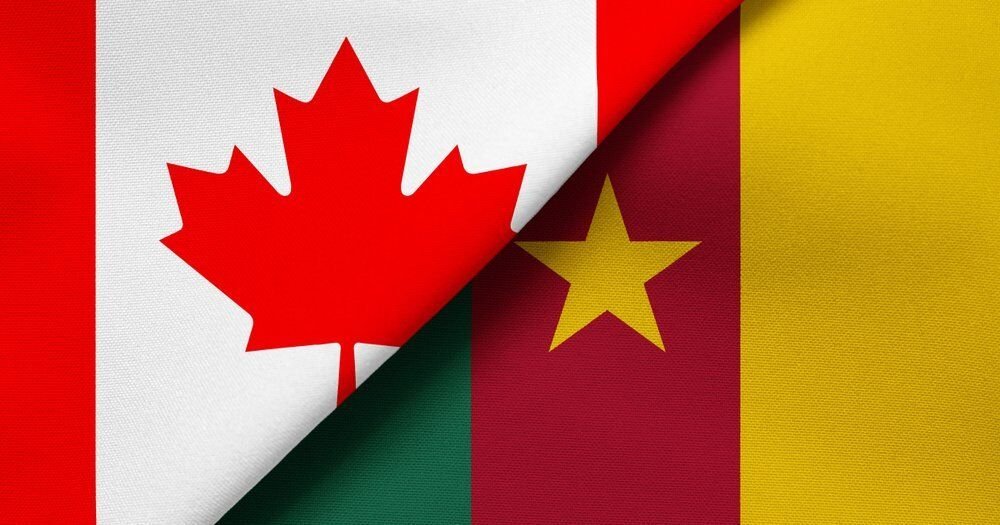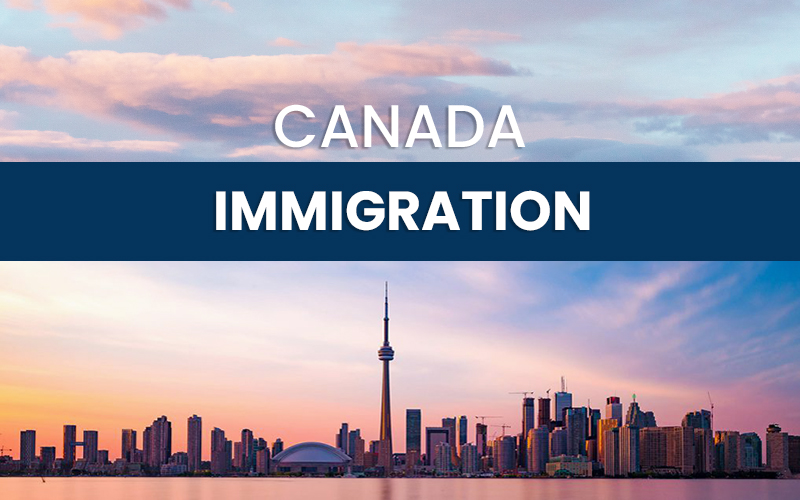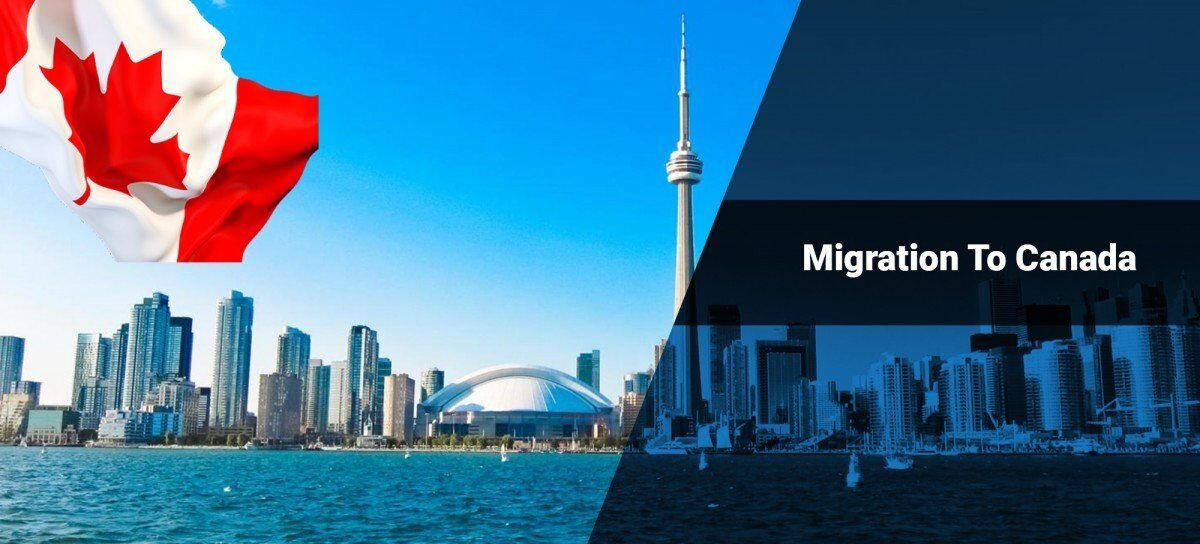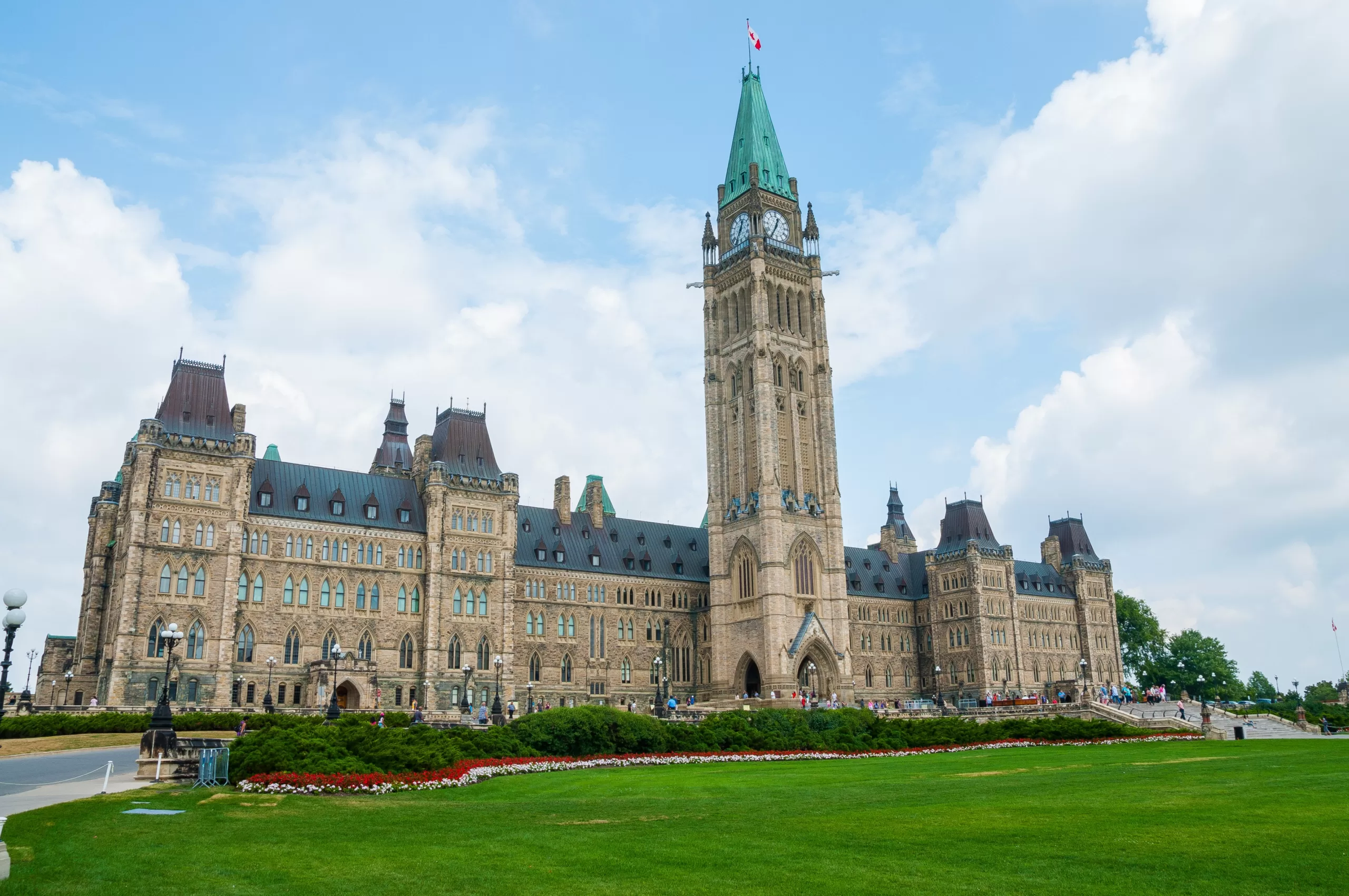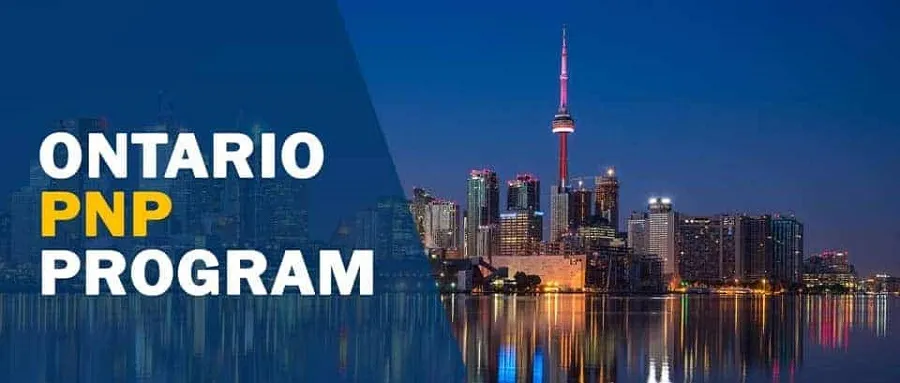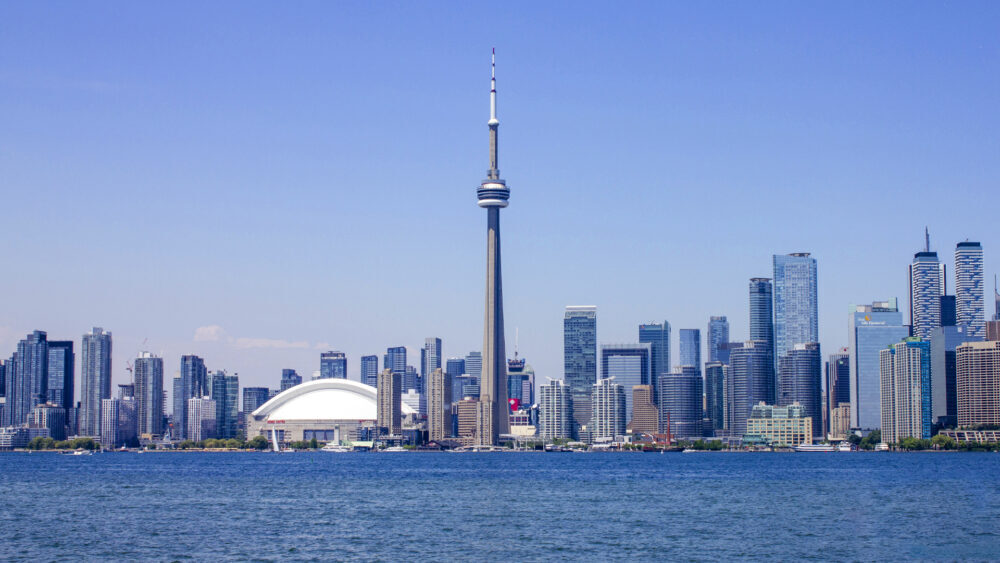
- November 22, 2022
- Admin
- 0
Table of Contents
ToggleDo I need a Visa to visit Canada?
Whether or not you need a visa to visit Canada depends on your nationality and the purpose of your visit. If you are a citizen of a visa-exempt country, you do not need a visa to visit Canada for tourism or business purposes for a period of up to six months. You will need to obtain an Electronic Travel Authorization (eTA) before you travel to Canada unless you are exempt from the eTA requirement.
If you are a citizen of a country that requires a visa to visit Canada, you will need to apply for a temporary resident visa (TRV) before you travel. You can apply for a TRV online or at a visa application centre. You will need to provide supporting documents, such as a valid passport, proof of your purpose of visit, and proof of your ability to support yourself financially during your stay in Canada.
It is important to note that the requirements for a TRV can vary depending on the country you are from and the purpose of your visit. You should carefully review the requirements and apply well in advance of your intended travel date.
To learn more about the visa requirements for visiting Canada and how to apply, you can visit the website of Immigration, Refugees and Citizenship Canada (IRCC), the government department responsible for immigration to Canada.
What are the different types of Canadian Visas by the number of entries?
There are several types of Canadian visas that allow for different numbers of entries into Canada.
Single-entry visa: This type of visa allows you to enter Canada once for the purpose specified on your visa, such as tourism, business, or study. Once you leave Canada, your visa is no longer valid, and you will need to apply for a new visa if you want to return.
Multiple-entry visa: This type of visa allows you to enter and leave Canada multiple times for the purpose specified on your visa. The validity period of a multiple-entry visa can vary, but it is usually valid for a period of up to 10 years.
Super visa: This type of visa is specifically designed for parents and grandparents of Canadian citizens and permanent residents who want to visit Canada for an extended period of time. The super visa allows multiple entries into Canada and is valid for up to 10 years.
It is important to note that the requirements and eligibility for each type of visa can vary depending on the specific visa category and the country you are from. You should carefully review the requirements and apply well in advance of your intended travel date.
To learn more about the different types of Canadian visas and how to apply, you can visit the website of Immigration, Refugees and Citizenship Canada (IRCC), the government department responsible for immigration to Canada.
What are the different types of Canadian Visas?
There are several types of Canadian visas that allow individuals to come to Canada for different purposes, such as tourism, business, study, work, or immigration. Some of the main types of Canadian visas include:
- Temporary resident visa (TRV): This type of visa allows individuals to visit Canada for a temporary period of time, such as for tourism, business, or study.
- Work permit: This type of visa allows individuals to work in Canada temporarily, usually for a specific employer and in a specific occupation.
- Study permit: This type of visa allows individuals to study in Canada at a designated learning institution.
- Electronic Travel Authorization (eTA): This type of visa allows individuals from visa-exempt countries to travel to Canada by air for tourism or business purposes for a period of up to six months.
- Permanent resident visa: This type of visa allows individuals to live, work, and study in Canada permanently.
It is important to note that the requirements and eligibility for each type of visa can vary depending on the specific visa category and the country you are from. You should carefully review the requirements and apply well in advance of your intended travel date.
To learn more about the different types of Canadian visas and how to apply, you can visit the website of Immigration, Refugees and Citizenship Canada (IRCC), the government department responsible for immigration to Canada.
What is a temporary resident visa?
A temporary resident visa (TRV) is a type of Canadian visa that allows individuals to visit Canada for a temporary period of time, such as for tourism, business, or study.
To be eligible for a TRV, you must have a valid passport, be in good health, have no criminal or immigration-related convictions, and have sufficient funds to support yourself financially during your stay in Canada. You may also be required to provide additional documents, such as a letter of invitation from a Canadian host or proof of your purpose of visit.
To apply for a TRV, you must complete the application forms and submit them to Immigration, Refugees and Citizenship Canada (IRCC), the government department responsible for immigration to Canada. You may be able to apply online or at a visa application centre in your country of residence. You will also need to pay the required fees.
It is important to note that the requirements and eligibility for a TRV can vary depending on the specific visa category and the country you are from. You should carefully review the requirements and apply well in advance of your intended travel date.
To learn more about the temporary resident visa and how to apply, you can visit the IRCC website.
A tourist visa is a type of temporary resident visa (TRV) that allows individuals to visit Canada for tourism purposes, such as visiting family or friends, going sightseeing, or participating in recreational activities.
To be eligible for a tourist visa, you must have a valid passport, be in good health, have no criminal or immigration-related convictions, and have sufficient funds to support yourself financially during your stay in Canada. You may also be required to provide additional documents, such as a letter of invitation from a Canadian host or proof of your travel arrangements.
To apply for a tourist visa, you must complete the application forms and submit them to Immigration, Refugees and Citizenship Canada (IRCC), the government department responsible for immigration to Canada. You may be able to apply online or at a visa application centre in your country of residence. You will also need to pay the required fees.
It is important to note that the requirements and eligibility for a tourist visa can vary depending on the specific visa category and the country you are from. You should carefully review the requirements and apply well in advance of your intended travel date.
To learn more about the tourist visa and how to apply, you can visit the IRCC website.
What is a Super Visa?
The super visa is a type of multiple-entry temporary resident visa specifically designed for parents and grandparents of Canadian citizens and permanent residents who want to visit Canada for an extended period of time.
To be eligible for a super visa, you must have a valid passport, be in good health, have no criminal or immigration-related convictions, and have sufficient funds to support yourself financially during your stay in Canada. You must also have a letter of invitation from your child or grandchild in Canada, proof of their Canadian citizenship or permanent resident status, and proof of private Canadian medical insurance that is valid for at least one year.
To apply for a super visa, you must complete the application forms and submit them to Immigration, Refugees and Citizenship Canada (IRCC), the government department responsible for immigration to Canada. You may be able to apply online or at a visa application centre in your country of residence. You will also need to pay the required fees.
It is important to note that the requirements and eligibility for a super visa can vary depending on the specific visa category and the country you are from. You should carefully review the requirements and apply well in advance of your intended travel date.
To learn more about the super visa and how to apply, you can visit the IRCC website.
Business Visitor Visa
A business visitor visa is a type of temporary resident visa (TRV) that allows individuals to visit Canada for business purposes, such as to attend meetings, conferences, or negotiations, or to explore business opportunities.
To be eligible for a business visitor visa, you must have a valid passport, be in good health, have no criminal or immigration-related convictions, and have sufficient funds to support yourself financially during your stay in Canada. You may also be required to provide additional documents, such as a letter of invitation from a Canadian host or proof of your purpose of visit.
To apply for a business visitor visa, you must complete the application forms and submit them to Immigration, Refugees and Citizenship Canada (IRCC), the government department responsible for immigration to Canada. You may be able to apply online or at a visa application centre in your country of residence. You will also need to pay the required fees.
It is important to note that the requirements and eligibility for a business visitor visa can vary depending on the specific visa category and the country you are from. You should carefully review the requirements and apply well in advance of your intended travel date.
To learn more about the business visitor visa and how to apply, you can visit the IRCC website.
Diplomatic & Official Visa
A diplomatic or official visa is a type of visa that is issued to individuals who are representing their governments, international organizations, or other recognized bodies in Canada.
To be eligible for a diplomatic or official visa, you must be a representative of a recognized government, international organization, or other recognized body, and you must have a valid passport. You may also be required to provide additional documents, such as a letter of accreditation or a diplomatic or official identity card.
To apply for a diplomatic or official visa, you must contact the Canadian embassy, high commission, or consulate in your country of residence. You will need to provide the required documents and pay the required fees.
It is important to note that the requirements and eligibility for a diplomatic or official visa can vary depending on the specific visa category and the country you are from. You should carefully review the requirements and apply well in advance of your intended travel date.
To learn more about diplomatic and official visas and how to apply, you can visit the website of Global Affairs Canada, the government department responsible for foreign affairs and international trade.
Facilitation Visa
A facilitation visa is a type of temporary resident visa (TRV) that allows individuals who are not eligible for a regular TRV to visit Canada for a specific purpose, such as to attend a funeral or visit a sick family member.
To be eligible for a facilitation visa, you must have a valid passport, be in good health, have no criminal or immigration-related convictions, and have sufficient funds to support yourself financially during your stay in Canada. You may also be required to provide additional documents, such as a letter of invitation from a Canadian host or proof of your purpose of visit.
To apply for a facilitation visa, you must complete the application forms and submit them to Immigration, Refugees and Citizenship Canada (IRCC), the government department responsible for immigration to Canada. You may be able to apply online or at a visa application centre in your country of residence. You will also need to pay the required fees.
It is important to note that the requirements and eligibility for a facilitation visa can vary depending on the specific visa category and the country you are from. You should carefully review the requirements and apply well in advance of your intended travel date.
To learn more about the facilitation visa and how to apply, you can visit the IRCC website.
Courtesy Visa
A courtesy visa is a type of temporary resident visa (TRV) that is issued to individuals who are not eligible for a regular TRV, but who are visiting Canada for a specific purpose that is deemed to be in the national interest of Canada.
To be eligible for a courtesy visa, you must have a valid passport, be in good health, have no criminal or immigration-related convictions, and have sufficient funds to support yourself financially during your stay in Canada. You may also be required to provide additional documents, such as a letter of invitation from a Canadian host or proof of your purpose of visit.
To apply for a courtesy visa, you must contact the Canadian embassy, high commission, or consulate in your country of residence. You will need to provide the required documents and pay the required fees.
It is important to note that the requirements and eligibility for a courtesy visa can vary depending on the specific visa category and the country you are from. You should carefully review the requirements and apply well in advance of your intended travel date.
To learn more about the courtesy visa and how to apply, you can visit the website of Global Affairs Canada, the government department responsible for foreign affairs and international trade.
Business Visa
A business visa is a type of temporary resident visa (TRV) that allows individuals to visit Canada for business purposes, such as to attend meetings, conferences, or negotiations, or to explore business opportunities.
To be eligible for a business visa, you must have a valid passport, be in good health, have no criminal or immigration-related convictions, and have sufficient funds to support yourself financially during your stay in Canada. You may also be required to provide additional documents, such as a letter of invitation from a Canadian host or proof of your purpose of visit.
To apply for a business visa, you must complete the application forms and submit them to Immigration, Refugees and Citizenship Canada (IRCC), the government department responsible for immigration to Canada. You may be able to apply online or at a visa application centre in your country of residence. You will also need to pay the required fees.
It is important to note that the requirements and eligibility for a business visa can vary depending on the specific visa category and the country you are from. You should carefully review the requirements and apply well in advance of your intended travel date.
To learn more about the business visa and how to apply, you can visit the IRCC website.
Organ Donor Visa
An organ donor visa is a type of temporary resident visa (TRV) that is issued to individuals who are coming to Canada to donate an organ to a Canadian recipient.
To be eligible for an organ donor visa, you must have a valid passport, be in good health, have no criminal or immigration-related convictions, and have sufficient funds to support yourself financially during your stay in Canada. You may also be required to provide additional documents, such as a letter of invitation from the organ recipient or proof of your medical assessment.
To apply for an organ donor visa, you must complete the application forms and submit them to Immigration, Refugees and Citizenship Canada (IRCC), the government department responsible for immigration to Canada. You may be able to apply online or at a visa application centre in your country of residence. You will also need to pay the required fees.
It is important to note that the requirements and eligibility for an organ donor visa can vary depending on the specific visa category and the country you are from. You should carefully review the requirements and apply well in advance of your intended travel date.
To learn more about organ donor visa and how to apply, you can visit the IRCC website.
Visa to give birth in Canada
There is no specific visa category for individuals who want to come to Canada to give birth. However, if you are planning to give birth in Canada, you will need to apply for a temporary resident visa (TRV) or an Electronic Travel Authorization (eTA) depending on your nationality and the purpose of your visit.
To be eligible for a TRV or eTA, you must have a valid passport, be in good health, have no criminal or immigration-related convictions, and have sufficient funds to support yourself financially during your stay in Canada. You may also be required to provide additional documents, such as a letter of invitation from a Canadian host or proof of your travel arrangements.
To apply for a TRV or eTA, you must complete the application forms and submit them to Immigration, Refugees and Citizenship Canada (IRCC), the government department responsible for immigration to Canada. You may be able to apply online or at a visa application centre in your country of residence. You will also need to pay the required fees.
It is important to note that the requirements and eligibility for a TRV or eTA can vary depending on the specific visa category and the country you are from. You should carefully review the requirements and apply well in advance of your intended travel date.
To learn more about the TRV and eTA and how to apply, you can visit the IRCC website.
What is an eTA?
An Electronic Travel Authorization (eTA) is a type of Canadian visa that allows individuals from visa-exempt countries to travel to Canada by air for tourism or business purposes for a period of up to six months.
To be eligible for an eTA, you must have a valid passport, be in good health, have no criminal or immigration-related convictions, and have sufficient funds to support yourself financially during your stay in Canada. You may also be required to provide additional information, such as your employment and travel history.
To apply for an eTA, you must complete the online application form and pay the required fee. You will need to provide your personal information, passport details, and the answers to some security-related questions. The process is generally quick and easy, and you should receive a decision on your application within minutes.
It is important to note that the eTA is not a visa, and it does not guarantee entry to Canada. You may still be required to meet additional entry requirements, such as undergoing a health examination or providing additional documents at the border.
To learn more about the eTA and how to apply, you can visit the website of Immigration, Refugees and Citizenship Canada (IRCC), the government department responsible for immigration to Canada.
What is a temporary residence permit?
A temporary residence permit is a document that allows individuals who are not Canadian citizens or permanent residents to legally reside in Canada for a limited period of time.
There are several types of temporary residence permits, including work permits, study permits, and visitor records. The type of temporary residence permit you need will depend on the purpose of your stay in Canada, such as working, studying, or visiting.
To be eligible for a temporary residence permit, you must have a valid passport, be in good health, have no criminal or immigration-related convictions, and have sufficient funds to support yourself financially during your stay in Canada. You may also be required to provide additional documents, such as a letter of invitation from a Canadian host or proof of your employment or enrolment in a designated learning institution (DLI).
To apply for a temporary residence permit, you must complete the application forms and submit them to Immigration, Refugees and Citizenship Canada (IRCC), the government department responsible for immigration to Canada. You may be able to apply online or at a visa application centre in your country of residence. You will also need to pay the required fees.
It is important to note that the requirements and eligibility for a temporary residence permit can vary depending on the specific permit category and the country you are from. You should carefully review the requirements and apply well in advance of your intended travel date.
To learn more about temporary residence permits and how to apply, you can visit the IRCC website.
What is a temporary work permit?
A temporary work permit is a type of temporary residence permit that allows individuals who are not Canadian citizens or permanent residents to work in Canada for a limited period of time.
To be eligible for a temporary work permit, you must have a valid passport, be in good health, have no criminal or immigration-related convictions, and have sufficient funds to support yourself financially during your stay in Canada. You must also have a job offer from a Canadian employer and meet the necessary requirements for the job, such as having the necessary education, skills, and experience.
To apply for a temporary work permit, you must complete the application forms and submit them to Immigration, Refugees and Citizenship Canada (IRCC), the government department responsible for immigration to Canada. You may be able to apply online or at a visa application centre in your country of residence. You will also need to pay the required fees.
It is important to note that the requirements and eligibility for a temporary work permit can vary depending on the specific permit category and the country you are from. You should carefully review the requirements and apply well in advance of your intended start date of work in Canada.
To learn more about temporary work permits and how to apply, you can visit the IRCC website.
Temporary Foreign Worker Program.
The Temporary Foreign Worker Program (TFWP) is a program administered by Immigration, Refugees and Citizenship Canada (IRCC) that allows Canadian employers to hire foreign workers on a temporary basis when they are unable to find qualified Canadian citizens or permanent residents to fill their job openings.
To be eligible for the TFWP, you must have a valid passport, be in good health, have no criminal or immigration-related convictions, and have sufficient funds to support yourself financially during your stay in Canada. You must also have a job offer from a Canadian employer and meet the necessary requirements for the job, such as having the necessary education, skills, and experience.
To apply for the TFWP, the Canadian employer must first obtain a Labour Market Impact Assessment (LMIA) from Employment and Social Development Canada (ESDC), the government department responsible for employment and social development. The LMIA is a document that assesses the impact of hiring a foreign worker on the Canadian labour market and determines whether there is a need for the worker in Canada.
Once the LMIA has been obtained, the foreign worker can apply for a temporary work permit from IRCC. You will need to complete the application forms and submit them to IRCC, along with the required fees and supporting documents. You may be able to apply online or at a visa application centre in your country of residence.
It is important to note that the requirements and eligibility for the TFWP can vary depending on the specific permit category and the country you are from. You should carefully review the requirements and apply well in advance of your intended start date of work in Canada.
To learn more about the TFWP and how to apply, you can visit the IRCC website.
Open Work Permit
An open work permit is a type of temporary residence permit that allows individuals who are not Canadian citizens or permanent residents to work in Canada for a limited period of time without being tied to a specific employer or job.
To be eligible for an open work permit, you must have a valid passport, be in good health, have no criminal or immigration-related convictions, and have sufficient funds to support yourself financially during your stay in Canada. You may also be required to meet additional requirements, depending on the specific category of open work permit you are applying for.
To apply for an open work permit, you must complete the application forms and submit them to Immigration, Refugees and Citizenship Canada (IRCC), the government department responsible for immigration to Canada. You may be able to apply online or at a visa application centre in your country of residence. You will also need to pay the required fees.
It is important to note that the requirements and eligibility for an open work permit can vary depending on the specific permit category and the country you are from. You should carefully review the requirements and apply well in advance of your intended start date of work in Canada.
To learn more about open work permits and how to apply, you can visit the IRCC website.
Work and Holiday Visa/Work and Travel Visa
The Work and Holiday visa, also known as the Work and Travel visa, is a type of temporary residence permit that allows individuals who are aged 18 to 35 and who are from certain countries to work and travel in Canada for a period of up to 12 months.
To be eligible for a Work and Holiday visa, you must have a valid passport, be in good health, have no criminal or immigration-related convictions, and have sufficient funds to support yourself financially during your stay in Canada. You must also meet the requirements of the International Experience Canada (IEC) program, such as having a valid passport from a participating country, having completed post-secondary education, and having sufficient English or French language skills.
To apply for a Work and Holiday visa, you must complete the application forms and submit them to Immigration, Refugees and Citizenship Canada (IRCC), the government department responsible for immigration to Canada. You may be able to apply online or at a visa application centre in your country of residence. You will also need to pay the required fees.
It is important to note that the requirements and eligibility for a Work and Holiday visa can vary depending on the specific visa category and the country you are from. You should carefully review the requirements and apply well in advance of your intended start date of travel to Canada.
To learn more about the Work and Holiday visa and how to apply, you can visit the IEC website.
Post-Graduate Work Permit
A post-graduate work permit (PGWP) is a type of temporary residence permit that allows individuals who have graduated from a designated learning institution (DLI) in Canada to work in Canada for a period of up to three years.
To be eligible for a PGWP, you must have completed a program of study at a DLI that is at least eight months in duration and that leads to a degree, diploma, or certificate. You must also have a valid passport, be in good health, have no criminal or immigration-related convictions, and have sufficient funds to support yourself financially during your stay in Canada.
To apply for a PGWP, you must complete the application forms and submit them to Immigration, Refugees and Citizenship Canada (IRCC), the government department responsible for immigration to Canada. You may be able to apply online or at a visa application centre in your country of residence. You will also need to pay the required fees.
It is important to note that the requirements and eligibility for a PGWP can vary depending on the specific permit category and the country you are from. You should carefully review the requirements and apply well in advance of your intended start date of work in Canada.
To learn more about the PGWP and how to apply, you can visit the IRCC website.
Student Visa
A student visa, also known as a study permit, is a type of temporary resident visa that allows individuals to study in Canada at a designated learning institution (DLI).
To be eligible for a student visa, you must have a valid passport, be in good health, have no criminal or immigration-related convictions, and have sufficient funds to support yourself financially during your studies in Canada. You must also have been accepted to a DLI in Canada and have proof of your acceptance, such as a letter of acceptance from the institution.
To apply for a student visa, you must complete the application forms and submit them to Immigration, Refugees and Citizenship Canada (IRCC), the government department responsible for immigration to Canada. You may be able to apply online or at a visa application centre in your country of residence. You will also need to pay the required fees.
It is important to note that the requirements and eligibility for a student visa can vary depending on the specific visa category and the country you are from. You should carefully review the requirements and apply well in advance of your intended start date at the DLI.
To learn more about the student visa and how to apply, you can visit the IRCC website.
Different types of permanent visas in Canada
There are several types of permanent visas in Canada that allow individuals to live, work, and study in Canada on a permanent basis. Some of the main types of permanent visas in Canada are:
- Permanent Resident Visa: This is a visa that allows individuals to immigrate to Canada as permanent residents. To be eligible for a permanent resident visa, you must meet the requirements of one of the immigration programs administered by Immigration, Refugees and Citizenship Canada (IRCC), such as the Federal Skilled Worker Program or the Provincial Nominee Program.
- Sponsorship Visa: This is a visa that allows individuals to immigrate to Canada as permanent residents through sponsorship by a Canadian citizen or permanent resident. To be eligible for a sponsorship visa, you must be related to the sponsor, such as a spouse, common-law partner, dependent child, or other relatives, and you must meet the requirements of the immigration program.
- Refugee Visa: This is a visa that allows individuals who have been persecuted or are at risk of persecution in their home country to seek protection in Canada as permanent residents. To be eligible for a refugee visa, you must be a convention refugee or a person in need of protection, and you must meet the requirements of the immigration program.
- Business Visa: This is a visa that allows individuals who have the skills and experience to start a business or invest in Canada to immigrate as permanent residents. To be eligible for a business visa, you must meet the requirements of one of the immigration programs administered by IRCC, such as the Start-up Visa Program or the Self-Employed Persons Program.
To learn more about the different types of permanent visas in Canada and how to apply, you can visit the IRCC website.
PNP program Canada
The Provincial Nominee Program (PNP) is a Canadian immigration program that allows provinces and territories to nominate individuals for permanent residence in Canada. Each province and territory has its own PNP, which is designed to meet the specific needs and priorities of the region.
To apply for the PNP, you must be nominated by a province or territory and meet the eligibility requirements for that specific program. You will also need to meet the general requirements for Canadian permanent residence, which include factors such as your age, language skills, work experience, and adaptability.
The PNP is one of several pathways to permanent residence in Canada. Other pathways include the Federal Skilled Worker Program, the Federal Skilled Trades Program, and the Canadian Experience Class.
To learn more about the PNP and how to apply, you can visit the website of Immigration, Refugees and Citizenship Canada (IRCC), the government department responsible for immigration to Canada.
Family Sponsorship
The Family Class sponsorship program is a Canadian immigration program that allows Canadian citizens and permanent residents to sponsor certain family members to come and live in Canada permanently.
To be eligible to sponsor a family member, you must be a Canadian citizen or permanent resident, be 18 years of age or older, and meet certain income requirements. You must also be able to demonstrate that you are able to provide for the basic needs of the family member you are sponsoring, such as food, clothing, and shelter.
The family members who may be eligible for sponsorship through the Family Class program include:
Spouses, common-law partners, and conjugal partners
Dependent children, including adopted children
Parents and grandparents
Other relatives, such as siblings, nephews and nieces, or grandparents, in certain circumstance
To apply to sponsor a family member, you must complete the sponsorship application and submit it to Immigration, Refugees and Citizenship Canada (IRCC), the government department responsible for immigration to Canada. You will also need to provide supporting documents, such as proof of your relationship to the family member you are sponsoring and proof of your ability to provide for their needs.
It is important to note that the Family Class sponsorship program has quotas and processing times vary depending on the category and location of the sponsored family member. You should also be prepared to wait several months or even years for your application to be processed.
To learn more about the Family Class sponsorship program and how to apply, you can visit the IRCC website.
Express Entry
Express Entry is an online immigration application system used by Immigration, Refugees and Citizenship Canada (IRCC) to manage applications for permanent residence in Canada. It is used to process applications under the Federal Skilled Worker Program, the Federal Skilled Trades Program, and the Canadian Experience Class.
To be eligible for Express Entry, you must first create an online profile and provide information about your skills, work experience, language ability, and other factors. Your profile will then be given a score based on the Comprehensive Ranking System (CRS), which is used to rank candidates based on their likelihood of success in Canada.
If you are ranked highly enough, you may be invited to apply for permanent residence through a draw from the Express Entry pool. If you are invited, you will have 60 days to complete and submit your application for permanent residence.
It is important to note that the Express Entry system is very competitive, and not all candidates who create a profile will be invited to apply for permanent residence. The number of invitations issued and the cut-off score for each draw can vary significantly, and the process times can also vary.
To learn more about Express Entry and how to apply, you can visit the IRCC website.
Quebec-selected skilled workers
The Quebec-Selected Skilled Worker Program is a Canadian immigration program that allows the province of Quebec to select immigrants who are interested in living and working in the province. To be eligible for the program, you must meet the requirements set by Quebec and be able to demonstrate that you have the skills, education, and experience needed to contribute to the Quebec economy.
To apply for the Quebec-Selected Skilled Worker Program, you must first create a profile through the Mon project Québec online platform. Your profile will be assessed based on factors such as your age, language ability, education, work experience, and family situation. If you are found to be eligible, you will be issued a certificate of selection, which you can use to apply for a Quebec Selection Certificate (CSQ).
Once you have been issued a CSQ, you can apply for permanent residence through Immigration, Refugees and Citizenship Canada (IRCC), the government department responsible for immigration to Canada. You will need to provide supporting documents, such as proof of your language ability and education, and pay the required fees.
It is important to note that the Quebec-Selected Skilled Worker Program has quotas and processing times can vary depending on the number of applications received. You should also be prepared to wait several months or even years for your application to be processed.
To learn more about the Quebec-Selected Skilled Worker Program and how to apply, you can visit the website of the Quebec Ministry of Immigration, Diversity, and Inclusion.
Atlantic Immigration Program
The Atlantic Immigration Pilot (AIP) is a Canadian immigration program that allows employers in the Atlantic provinces of Newfoundland and Labrador, Prince Edward Island, Nova Scotia, and New Brunswick to hire foreign workers and international graduates. The program is designed to help these provinces address labor shortages and support economic growth.
To be eligible for the AIP, you must have a job offer from a designated employer in one of the Atlantic provinces and meet the requirements of one of the three categories:
- High-skilled worker: You must have a job offer in a skilled occupation (National Occupational Classification skill level 0, A, or B) and meet the language requirements for your occupation.
- Intermediate-skilled worker: You must have a job offer in a semi-skilled occupation (National Occupational Classification skill level C) and meet the language requirements for your occupation.
- International graduate: You must have completed a post-secondary program of at least two years in duration in one of the Atlantic provinces and have a job offer in your field of study.
To apply for the AIP, you must first create an online profile and provide information about yourself and your job offer. You will also need to provide supporting documents, such as proof of your education and language ability. If your profile is approved, you will be issued a confirmation of designation and can apply for a work permit through Immigration, Refugees and Citizenship Canada (IRCC), the government department responsible for immigration to Canada.
Once you have worked in the Atlantic province for at least one year and meet the other requirements, you may be eligible to apply for permanent residence through the AIP.
To learn more about the Atlantic Immigration Pilot and how to apply, you can visit the IRCC website.
Caregivers
The Caregiver Program is a Canadian immigration program that allows individuals who have the skills and experience to provide care for children, seniors, or individuals with high medical needs to come to Canada to work as live-in caregivers.
To be eligible for the Caregiver Program, you must have a job offer from a Canadian employer to work as a live-in caregiver, have at least six months of full-time training or one year of full-time paid work experience in the field of caregiving, and meet the language requirements for your job. You must also pass a medical examination and security clearance.
To apply for the Caregiver Program, you must complete the application forms and submit them to Immigration, Refugees and Citizenship Canada (IRCC), the government department responsible for immigration to Canada. You will also need to provide supporting documents, such as proof of your education and work experience, and pay the required fees.
It is important to note that the Caregiver Program has quotas and processing times can vary depending on the number of applications received. You should also be prepared to wait several months or even years for your application to be processed.
Once you have completed the required work experience as a live-in caregiver, you may be eligible to apply for permanent residence through the Caregiver Program.
To learn more about the Caregiver Program and how to apply, you can visit the IRCC website.
Start-up Visa
The Start-Up Visa is a Canadian immigration program that allows entrepreneurs with innovative business ideas to come to Canada to start and grow their businesses. To be eligible for the Start-Up Visa, you must have a business idea that is supported by a designated organization, such as a venture capital fund, angel investor group, or business incubator. You must also meet the language requirements and have sufficient settlement funds to support yourself and your dependents while you establish your business in Canada.
To apply for the Start-Up Visa, you must complete the application forms and submit them to Immigration, Refugees and Citizenship Canada (IRCC), the government department responsible for immigration to Canada. You will also need to provide supporting documents, such as proof of your business idea and support from a designated organization, and pay the required fees.
It is important to note that the Start-Up Visa is a competitive program, and not all applicants will be approved. The processing times can also vary depending on the number of applications received and the complexity of the case.
If your application is approved, you will receive a temporary resident visa, which will allow you to come to Canada to start and grow your business. Once you have established your business in Canada and meet the other requirements, you may be eligible to apply for permanent residence through the Start-Up Visa program.
To learn more about the Start-Up Visa and how to apply, you can visit the IRCC website.
Self-employed
The Self-Employed Persons Program is a Canadian immigration program that allows individuals who have the skills, experience, and intention to be self-employed in Canada to apply for permanent residence. To be eligible for the program, you must have relevant experience in cultural activities or athletics, or have the intention and ability to create your own job by establishing a farm in Canada.
To apply for the Self-Employed Persons Program, you must complete the application forms and submit them to Immigration, Refugees and Citizenship Canada (IRCC), the government department responsible for immigration to Canada. You will also need to provide supporting documents, such as proof of your relevant experience or intention and ability to establish a farm, and pay the required fees.
It is important to note that the Self-Employed Persons Program is a competitive program, and not all applicants will be approved. The processing times can also vary depending on the number of applications received and the complexity of the case.
If your application is approved, you will receive a permanent resident visa, which will allow you to come to Canada and start your own business or farm.
To learn more about the Self-Employed Persons Program and how to apply, you can visit the IRCC website.
Federal Skilled Trade Program
The Federal Skilled Trades Program (FSTP) is a Canadian immigration program that allows individuals with experience in a skilled trade to apply for permanent residence in Canada. To be eligible for the FSTP, you must have at least two years of full-time work experience in a skilled trade within the last five years, meet the language requirements for your trade, and have a job offer or a certificate of qualification in your trade from a provincial or territorial authority.
To apply for the FSTP, you must create a profile through the Express Entry system, an online immigration application system used by Immigration, Refugees and Citizenship Canada (IRCC) to manage applications for permanent residence in Canada. Your profile will be assessed based on factors such as your age, language ability, education, work experience, and other factors. If you are found to be eligible, you will be issued an invitation to apply for permanent residence through a draw from the Express Entry pool.
If you are invited to apply, you will have 60 days to complete and submit your application for permanent residence, along with supporting documents and the required fees.
It is important to note that the FSTP is a competitive program, and not all candidates who create a profile through Express Entry will be invited to apply for permanent residence. The number of invitations issued and the cut-off score for each draw can vary significantly, and the process times can also vary.
To learn more about the Federal Skilled Trades Program and how to apply, you can visit the IRCC website.
Federal Skilled Worker Program
The Federal Skilled Worker Program (FSWP) is a Canadian immigration program that allows individuals with work experience in certain skilled occupations to apply for permanent residence in Canada. To be eligible for the FSWP, you must have at least one year of continuous full-time work experience in a skilled occupation (National Occupational Classification skill level 0, A, or B) within the last 10 years, meet the language requirements for your occupation, and have a post-secondary education credential.
To apply for the FSWP, you must create a profile through the Express Entry system, an online immigration application system used by Immigration, Refugees and Citizenship Canada (IRCC) to manage applications for permanent residence in Canada.
Your profile will be assessed based on factors such as your age, language ability, education, work experience, and other factors. If you are found to be eligible, you will be issued an invitation to apply for permanent residence through a draw from the Express Entry pool.
If you are invited to apply, you will have 60 days to complete and submit your application for permanent residence, along with supporting documents and the required fees.
It is important to note that the FSWP is a competitive program, and not all candidates who create a profile through Express Entry will be invited to apply for permanent residence. The number of invitations issued and the cut-off score for each draw can vary significantly, and the process times can also vary.
To learn more about the Federal Skilled Worker Program and how to apply, you can visit the IRCC website.
Canadian Experience Class
The Canadian Experience Class (CEC) is a Canadian immigration program that allows individuals with work experience in Canada to apply for permanent residence. To be eligible for the CEC, you must have at least one year of full-time (or equivalent part-time) skilled work experience in Canada within the last three years, meet the language requirements for your occupation, and have a post-secondary education credential.
To apply for the CEC, you must create a profile through the Express Entry system, an online immigration application system used by Immigration, Refugees and Citizenship Canada (IRCC) to manage applications for permanent residence in Canada.
Your profile will be assessed based on factors such as your age, language ability, education, work experience, and other factors. If you are found to be eligible, you will be issued an invitation to apply for permanent residence through a draw from the Express Entry pool.
If you are invited to apply, you will have 60 days to complete and submit your application for permanent residence, along with supporting documents and the required fees.
It is important to note that the CEC is a competitive program, and not all candidates who create a profile through Express Entry will be invited to apply for permanent residence. The number of invitations issued and the cut-off score for each draw can vary significantly, and the process times can also vary.
To learn more about the Canadian Experience Class and how to apply, you can visit the IRCC website.
The Canadian citizenship program is a program administered by Immigration, Refugees and Citizenship Canada (IRCC) that allows individuals who are not Canadian citizens to become Canadian citizens.
To be eligible for Canadian citizenship, you must meet certain requirements, such as being a permanent resident of Canada, having lived in Canada for a certain period of time, being able to communicate in English or French, and having a good knowledge of Canada and the responsibilities of citizenship. You must also have no criminal or immigration-related convictions, and you must be of good character.
To apply for Canadian citizenship, you must complete the application forms and submit them to IRCC, along with the required fees and supporting documents. You may be able to apply online or by mail.
The process of becoming a Canadian citizen typically involves several steps, including submitting an application, completing a citizenship test, and attending a citizenship ceremony. Once you have completed these steps and your application has been approved, you will become a Canadian citizen and be able to enjoy the rights and privileges that come with citizenship, such as the right to vote and the right to hold a Canadian passport.
To learn more about the Canadian citizenship program and how to apply, you can visit the IRCC website.
How to Apply for a Canadian visa
To apply for a Canadian visa, you will need to follow the steps outlined below:
- Determine the type of visa you need: There are several types of Canadian visas, including temporary resident visas, electronic travel authorizations (eTAs), and permanent resident visas. To determine the type of visa you need, you will need to consider the purpose of your visit to Canada, such as tourism, business, work, study, or immigration.
- Gather the required documents: You will need to provide certain documents with your visa application, such as your passport, photographs, proof of financial support, and any other documents required by the visa category you are applying for. You should carefully review the requirements and gather all the necessary documents before you start your application.
- Complete the application form: You will need to complete the application form and provide the required information, such as your personal details, passport information, and the answers to some security-related questions. You should ensure that the information you provide is accurate and complete.
- Pay the required fees: You will need to pay the required fees to cover the processing of your visa application. The fees vary depending on the type of visa you are applying for and the country you are from.
- Submit the application: You can submit your application online or at a visa application centre in your country of residence. You will need to provide the required documents and pay the fees as part of the submission process.
It is important to note that the requirements and process for applying for a Canadian visa can vary depending on the specific visa category and the country you are from. You should carefully review the requirements and follow the instructions provided by Immigration, Refugees and Citizenship Canada (IRCC), the government department responsible for immigration to Canada.
To learn more about the process.
What documents do I need when applying for a Canadian visa?
The documents you will need when applying for a Canadian visa will depend on the specific visa category and the country you are from. In general, you will need to provide the following types of documents:
- Passport: You will need to provide a valid passport that has at least six months validity remaining from the date of your intended travel to Canada. You will also need to provide copies of the passport pages that show your personal information, such as your name, date of birth, and photograph.
- Photographs: You will need to provide two recent passport-sized photographs that meet the requirements of the visa category you are applying for. The photographs should be of good quality, clear, and taken against a plain white or light-coloured background.
- Proof of financial support: You will need to provide evidence that you have sufficient funds to support yourself financially during your stay in Canada. This may include bank statements, pay stubs, or a letter from an employer.
- Other documents: You may be required to provide other documents as part of your visa application, depending on the specific visa category and the country you are from. These may include documents such as a job offer letter, a letter of invitation from a host in Canada, proof of enrolment in a designated learning institution (DLI), or a marriage certificate.
It is important to note that the requirements for the documents you will need to provide with your visa application can vary depending on the specific visa category and the country you are from. You should carefully review the requirements and gather all the necessary documents before you start your application.
To learn more about the documents you will need when applying for a Canadian visa, you can visit the website of Immigration, Refugees and Citizenship Canada (IRCC), the government department responsible for immigration to Canada.
What is the photo size for a Canadian visa?
The photo size for a Canadian visa is 50mm x 70mm (2 inches x 2.75 inches). The photograph should be of good quality, clear, and taken against a plain white or light-coloured background.
It is important to note that the photo requirements for a Canadian visa can vary depending on the specific visa category and the country you are from. You should carefully review the requirements and ensure that the photograph you provide meets the necessary standards.
To learn more about the photo requirements for a Canadian visa, you can visit the website of Immigration, Refugees and Citizenship Canada (IRCC), the government department responsible for immigration to Canada.
What are the requirements for getting a Canada visa?
The requirements for getting a Canadian visa will depend on the specific visa category and the country you are from. In general, you will need to meet the following requirements:
- Have a valid passport: You will need to have a valid passport that has at least six months’ validity remaining from the date of your intended travel to Canada.
- Be in good health: You will need to be in good health and may be required to undergo a medical examination as part of the visa application process.
- Have no criminal or immigration-related convictions: You will need to have no criminal or immigration-related convictions and may be required to provide a police clearance certificate as part of your visa application.
- Have sufficient funds: You will need to have sufficient funds to support yourself financially during your stay in Canada.
- Meet the requirements of the specific visa category: You will need to meet the requirements of the specific visa category you are applying for, such as having a job offer from a Canadian employer, being enrolled in a designated learning institution (DLI) in Canada, or being a spouse or dependent child of a Canadian citizen or permanent resident.
It is important to note that the requirements for a Canadian visa can vary depending on the specific visa category and the country you are from. You should carefully review the requirements and ensure that you meet them before you start your application.
To learn more about the requirements for a Canadian visa, you can visit the website of Immigration, Refugees and Citizenship Canada (IRCC), the government department responsible for immigration to Canada.
How to appeal for a Canada visa refusal?
If your application for a Canadian visa has been refused, you may have the option to appeal the decision to the Immigration and Refugee Board of Canada (IRB). The IRB is an independent administrative tribunal that reviews immigration and refugee matters in Canada.
To appeal the refusal of a Canadian visa, you will need to file a Notice of Appeal with the IRB within 15 days of receiving the refusal decision. You will need to provide the reasons for your appeal and any additional evidence that you would like the IRB to consider. You may also be required to pay a fee to file the appeal.
It is important to note that the appeal process can be complex and you may wish to seek the assistance of a lawyer or immigration representative to help you with your appeal. You should also be aware that the decision of the IRB is final and cannot be appealed to any other court or tribunal.
To learn more about the appeal process for a Canadian visa refusal, you can visit the website of the IRB or seek the assistance of a lawyer or immigration representative.
Is it hard to get a visa to Canada?
The difficulty of getting a visa to Canada can vary depending on the specific visa category and the country you are from. Some visa categories may be more competitive and have stricter eligibility requirements, while others may be easier to obtain.
For example, some of the factors that can affect the difficulty of getting a visa to Canada include:
- The purpose of your visit: Some visa categories, such as work visas or business visas, may be more competitive and have stricter eligibility requirements than others, such as tourist visas or electronic travel authorizations (eTAs).
- Your personal circumstances: Your personal circumstances, such as your age, education, work experience, and language skills, may also affect the difficulty of getting a visa to Canada.
- The country you are from: The difficulty of getting a visa to Canada may also vary depending on the country you are from. Some countries may have more relaxed visa requirements, while others may have stricter requirements.
Overall, the difficulty of getting a visa to Canada can vary and it is important to carefully review the requirements and ensure that you meet them before you start your application.
To learn more about the requirements for a Canadian visa and how to apply, you can visit the website of Immigration, Refugees and Citizenship Canada (IRCC), the government department responsible for immigration to Canada.
Which countries require a visa to enter Canada?
Most foreign nationals are required to have a valid visa to enter Canada. However, there are some exceptions for certain countries or territories, such as the United States and countries that are part of the visa-exempt category.
To determine whether you need a visa to enter Canada, you can check the visa requirements for your country on the website of Immigration, Refugees and Citizenship Canada (IRCC), the government department responsible for immigration to Canada.
If you do need a visa to enter Canada, you will need to apply for the appropriate visa category based on the purpose of your visit, such as tourism, business, work, or study. You will also need to meet the requirements of the visa category and provide the necessary documents as part of your application.
It is important to note that the visa requirements for Canada can vary depending on the specific visa category and the country you are from. You should carefully review the requirements and ensure that you meet them before you start your application.
To learn more about the visa requirements for Canada and how to apply, you can visit the IRCC website.
Which countries do not need a visa for Canada?
Some foreign nationals are able to enter Canada without a visa if they are from a visa-exempt country or territory. Currently, the following countries or territories are visa-exempt for Canada:
- Andorra
- Antigua and Barbuda
- Australia
- Austria
- Bahamas
- Barbados
- Belgium
- Bermuda
- British citizens
- British Overseas Territories Citizens (BOTCs)
- British Overseas Citizens (BOCs)
- British Protected Persons (BPPs)
- British Subject (BS)
- Brunei Darussalam
- Chile
- Croatia
- Cyprus
- Czech Republic
- Denmark
- Estonia
- Finland
- France
- Germany
- Greece
- Hungary
- Iceland
- Ireland
- Israel
- Italy
- Japan
- Republic of Korea
- Latvia
- Liechtenstein
- Lithuania
- Luxembourg
- Malta
- Mexico
- Monaco
- Netherlands
- New Zealand
- Norway
- Papua New Guinea
- Poland
- Portugal
- Samoa
- San Marino
- Singapore
- Slovakia
- Slovenia
- Solomon Islands
- Spain
- Sweden
- Switzerland
- Taiwan
- United States
- Vatican City State
It is important to note that the visa-exempt status for these countries or territories may change at any time. You should check the visa requirements for your country on the website of Immigration, Refugees and Citizenship Canada (IRCC), the government department responsible for immigration to Canada, to confirm whether you need a visa to enter Canada.
Even if you are from a visa-exempt country or territory, you may still need to apply for an electronic travel authorization (eTA) before you travel to Canada. An eTA is an electronic document that allows you to travel to Canada by air. You can apply for an eTA online or through your travel agent.
To learn more about the visa requirements for Canada and how to apply for an eTA, you can visit the IRCC website.
How long does it take to get a Canada visa?
The processing time for a Canadian visa can vary depending on the specific visa category and the country you are from. Processing times can also be affected by factors such as the volume of applications received, the completeness of the application, and the need for additional documentation or information.
In general, the processing time for a Canadian visa can take anywhere from a few days to several months, depending on the specific visa category.
To check the processing time for a Canadian visa, you can visit the website of Immigration, Refugees and Citizenship Canada (IRCC), the government department responsible for immigration to Canada. On the IRCC website, you can find the processing times for different visa categories and the countries they apply to.
It is important to note that the processing time for a Canadian visa is an estimate and may not be accurate in all cases. You should plan ahead and apply for your visa as early as possible to ensure that you have enough time to complete the process before your intended travel to Canada.
To learn more about the processing time for a Canadian visa, you can visit the IRCC website.
How to check your Canadian visa application status?
If you have applied for a Canadian visa, you can check the status of your application online through the Immigration, Refugees and Citizenship Canada (IRCC) website.
To check your visa application status online, you will need to follow the steps outlined below:
- Go to the IRCC website: Visit the IRCC website and click on the “Check your application status” button.
- Select your application type: Select the type of application you have submitted, such as a temporary resident visa, electronic travel authorization (eTA), or permanent resident visa.
- Enter your personal details: Enter your personal details, such as your name, date of birth, and application number. You will find your application number on your application receipt or the confirmation letter you received when you applied.
- Check your application status: Once you have entered your personal details, you will be able to view the current status of your application.
It is important to note that the status of your application may not be updated in real-time and may take some time to reflect any changes. You should also be aware that the processing time for a Canadian visa can vary depending on the specific visa category and the country you are from.
To learn more about how to check your visa application status online, you can visit the IRCC website.
What are the conditions for visa exemption in Canada?
The conditions for visa exemption in Canada vary depending on the specific visa-exempt country or territory. Generally, foreign nationals from visa-exempt countries or territories are able to enter Canada without a visa if they meet the following conditions:
- They have a valid passport: Foreign nationals from visa-exempt countries or territories must have a valid passport that has at least six months of validity remaining from the date of their intended travel to Canada.
- They have an electronic travel authorization (eTA): Most foreign nationals from visa-exempt countries or territories are required to have an electronic travel authorization (eTA) to enter Canada by air. An eTA is an electronic document that allows you to travel to Canada by air. You can apply for an eTA online or through your travel agent.
- They meet the requirements of the specific visa category: Foreign nationals from visa-exempt countries or territories must meet the requirements of the specific visa category they are applying for, such as tourism, business, or transit.
It is important to note that the conditions for visa exemption in Canada can vary depending on the specific visa-exempt country or territory. You should carefully review the requirements and ensure that you meet them before you start your application.
To learn more about the conditions for visa exemption in Canada and how to apply for an eTA, you can visit the website of Immigration, Refugees and Citizenship Canada (IRCC), the government department responsible for immigration to Canada.



